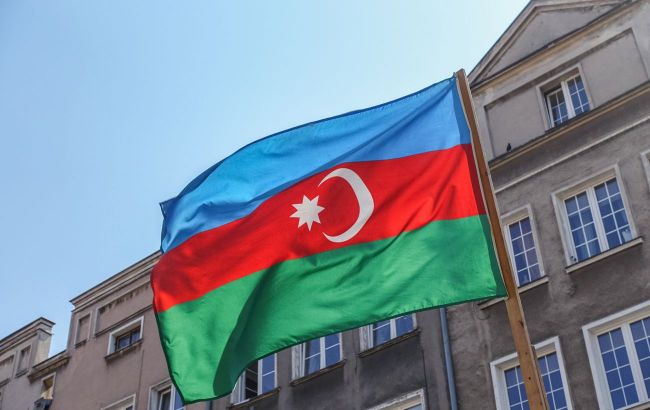Conflict between Azerbaijan and Armenia: Expert's view on Baku's position on Russia's involvement
 Photo: Azerbaijani flag (Getty Images)
Photo: Azerbaijani flag (Getty Images)
Baku wants to achieve an agreement through bilateral negotiations without the involvement of intermediaries. Georgian political analyst Gela Vasadze states in a comment to RBC-Ukraine for the article titled "Turning the wrong way: What lies behind Azerbaijan's policy toward Russia and Ukraine."
The Agreement on Peace and Political Settlement with Armenia has not yet been signed. It is important for Azerbaijan as it would finally remove Nagorno-Karabakh from the grey zone on the world map. This is necessary to attract reconstruction investments and stabilize relations with Armenia.
Normalizing bilateral relations is generally a matter of political will on both sides. Diplomats from Armenia and Azerbaijan agree that a peace treaty could realistically be signed by the end of 2024.
However, the details of the future peace agreement are still under discussion. They generally concern the demarcation of the border between the two countries, not just Nagorno-Karabakh. During Soviet times, the border was very conditional.
A crucial factor in achieving lasting peace is the issue of the Zangezur Corridor, a section of southern Armenia that connects Azerbaijan with its exclave, Nakhchivan, and with Türkiye. This corridor is said to have strategic significance as it is part of a larger logistical route.
Wojciech Wojtasiewicz, an analyst on South Caucasus issues at the Polish Institute of International Affairs, explains that both Azerbaijan and Russia are interested in opening this transport corridor. However, he noted that Armenia could have done so without any problems if it could have controlled it independently. At the same time, Azerbaijan wants the Zangezur Corridor to be extraterritorial so that Armenian border guards would not have control over it.
"And Russia, of course, also wants FSB border guards to control this territory," Wojtasiewicz pointed out.
This issue is important because whoever controls the corridor will be able to carry out inspections and collect transit fees on goods passing through it. The side that gains control could also block the route if necessary.
This is why Azerbaijan seeks bilateral agreements with Armenia. Intermediaries, including Russia, should interfere as little as possible in the negotiation process.
"Baku needs one thing from Moscow, but it is very important for Moscow not to interfere in resolving the conflict with Armenia according to Azerbaijan's scenario," says Georgian political analyst Gela Vasadze.
The Situation in Nagorno-Karabakh
As of August 9, 2024, the situation in Nagorno-Karabakh remains complex and tense. Azerbaijan continues to block the Lachin Corridor—the only transport route connecting Karabakh with Armenia. International organizations, including the UN, have called for the corridor to be opened for humanitarian aid.
Tensions between Armenia and Azerbaijan have persisted due to the lack of progress in peace negotiations and unresolved border demarcation issues. Although the sides have periodically announced intentions to reach a peace agreement, the conflict remains unresolved politically. The issue of the transport corridor through Zangezur, which is supposed to connect Azerbaijan with Nakhchivan, is one of the most crucial in the process of achieving a peace agreement.

